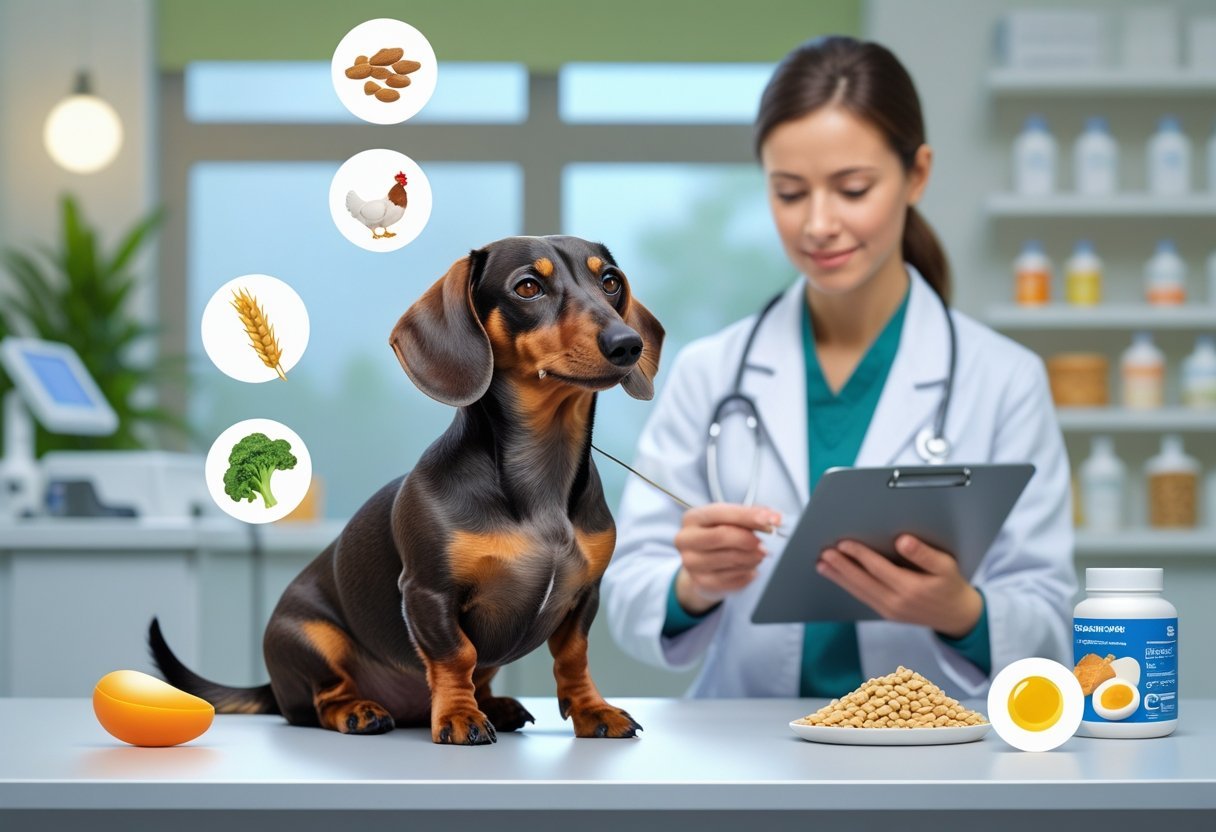Dachshunds can be sensitive to certain foods 🐾. Food allergies in this breed are surprisingly common 🌿. It’s important to recognize the signs of common dachshund food allergies early ⚠️.
Knowing which foods might trigger allergic reactions in your dachshund helps you keep them healthier and more comfortable 🐶.
Common signs of food allergies include itchy skin, ear infections, and stomach issues 🤧.
If your dog keeps scratching, licking, or seems sick after eating, it could be a reaction to something in their food 🍲.
Learning to spot these symptoms and figuring out what your dachshund is allergic to can make a real difference 💡.
This guide gives you a way to spot ingredients to avoid and steps to help your dog feel better ❤️.
Key Takeaways 📝
- Dachshunds often react to certain foods with allergy symptoms. 🐾
- Recognize common signs to identify food allergies early. 🔍
- Proper diet changes and vet advice can help manage allergies. 🩺
🐾 Free Dachshund Care Guide
Download our free checklist to ensure your Dachshund stays happy, healthy, and well-loved!
Get Your Free Guide 🐶Understanding Dachshund Food Allergies
Dachshund food allergies can cause skin itching, digestive problems, and constant discomfort 🐾. These allergies usually involve common ingredients like beef, chicken, dairy, or grains found in many commercial dog foods 🍞.
What Are Food Allergies in Dachshunds? 🤔
Food allergies in Dachshunds happen when their immune system reacts to certain proteins in their food ⚠️. This reaction can show up at any age, even if your dog has been eating the same food for a long time ⏳.
The most common culprits include:
- Beef 🐾
- Chicken 🐶
- Dairy 🥛
- Eggs 🥚
- Wheat 🌾
- Soy 🌱
- Corn 🌽
Allergies can cause problems even with small amounts of the allergen present ❗.
These reactions aren’t limited to new foods. Ingredients your Dachshund has eaten before can suddenly become an issue 🔄.
Testing is the only sure way to know what your Dachshund is allergic to 🧪.

🌿 Wild Earth Plant-Based Dog Food – Allergy-Friendly Nutrition
Clean, plant-based formula made to ease itchy skin and tummy troubles in Dachshunds. Perfect daily diet for sensitive pups 🐾.
- 100% plant-powered recipe, no meat allergens 🌱
- Supports skin, coat, and healthy digestion ✨
- Gentle choice for Doxies with common food sensitivities 💧
How Food Allergies Affect Dachshunds 🐕
When your Dachshund eats something they’re allergic to, their body tries to fight it 💥. This can lead to symptoms such as:
- Itchy skin (especially paws, ears, face) 🐾
- Ear infections 👂
- Diarrhea or vomiting 🤢
- Gas and bloating 💨
- Red, inflamed skin 🔴

Chronic ear infections and constant paw licking are warning signs 🚩.
Some Dachshunds may also lose hair in spots or develop sores. If you see these signs, a food allergy is possible 🩺.
Distinguishing Allergies from Food Sensitivities 🔍
Food allergies and sensitivities aren’t the same. Allergies trigger an immune response, even in tiny amounts, and cause symptoms like itching or swelling 🌡️.
Food sensitivities (sometimes called intolerances) usually mess with digestion, leading to gas, upset stomach, or loose stool, but rarely itching or skin issues 🍲.
Here’s a quick comparison:
| Symptom | Allergy ✅ | Sensitivity ⚪ |
|---|---|---|
| Itchy skin 🐾 | Yes | Rare |
| Ear infection 👂 | Yes | Rare |
| Vomiting 🤢 | Sometimes | Yes |
| Diarrhea 💨 | Sometimes | Yes |
Knowing the difference helps you and your vet choose the right diet changes and treatments for your Dachshund 🐶❤️.
Recognizing Symptoms of Food Allergies
Dachshunds with food allergies often show both physical and behavioral signs 🐾. It’s important to understand these symptoms so you can help your pet quickly and avoid bigger health problems ⚠️.
Common Physical Symptoms 🩺
Food allergies can cause a range of physical problems. Skin irritation is common 🌿.
You might notice redness, itching, or small bumps, especially on the belly, paws, or ears 👂. Some Dachshunds lick or bite at itchy spots, which can lead to sores or hair loss 🐶.
Digestive issues like vomiting, diarrhea, or frequent gas may also happen 🤢. These problems usually start soon after eating the problem food 🍲.
Chronic ear infections can signal an allergy, too. Look for signs like head shaking, dark wax, or a strong odor coming from the ears 🚩.
Common Physical Symptoms Table:
| Symptom | What to Look For 📝 |
|---|---|
| Itchy skin 🐾 | Scratching, licking |
| Redness or rash 🔴 | Especially on paws & belly |
| Hair loss 🐕 | Patches or bald spots |
| Ear problems 👂 | Odor, head shaking |
| Digestive issues 💨 | Vomiting, diarrhea, gas |
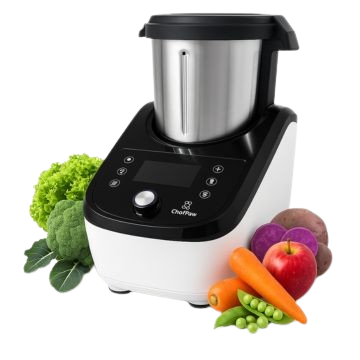
🥕 ChefPaw Fresh Food Maker – Homemade Allergy-Safe Meals
Create fresh, allergen-free meals tailored to your Dachshund’s needs. Keep their diet simple, clean, and healthy at home 🏡.
- Customize meals with safe, vet-approved ingredients 🥦
- Supports elimination diets for identifying triggers 🔍
- Easy to use and perfect for daily allergy care 🍲
Behavioral Changes Linked to Allergies 🐕
Dachshunds with food allergies may act differently. You might see restlessness, frequent scratching, or sudden mood changes 😟.
Some dogs become irritable or less playful 🎾. Refusal to eat certain foods, changes in sleeping habits, or hiding more than usual can also show up 🛏️.
If your Dachshund seems uncomfortable or distracted, it might be linked to allergy discomfort 💡.
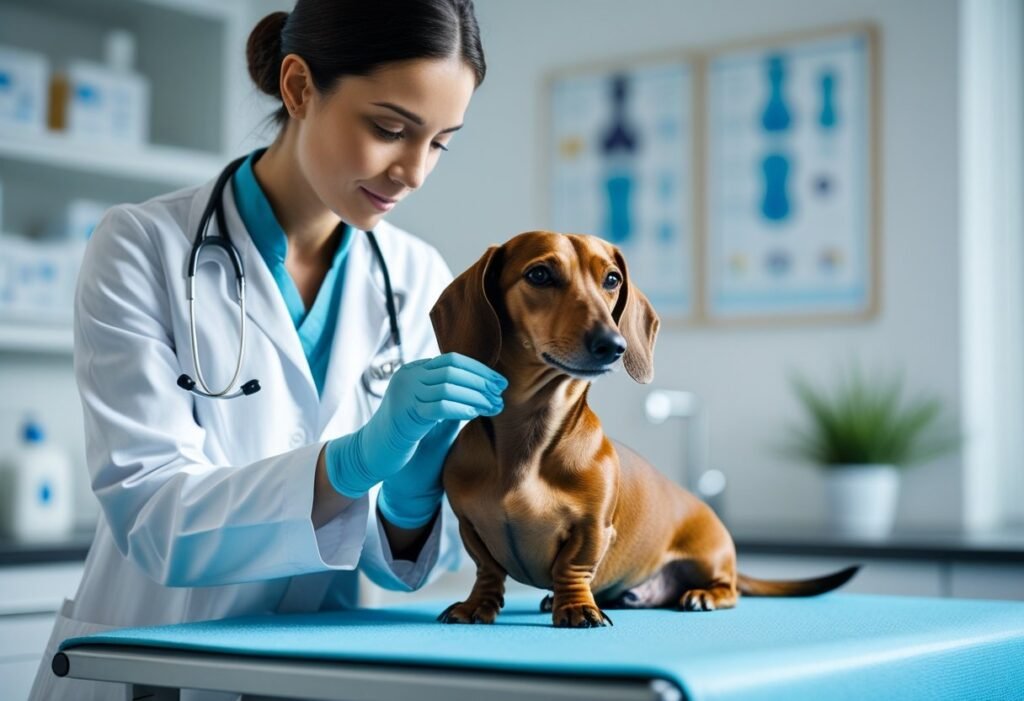
Watch for:
- Increased grooming or chewing on paws 🐾
- Whining or attention-seeking 🐕
- Reluctance to exercise or go outside 🚶
- Sleeping more than usual 😴
Sudden changes in behavior paired with physical symptoms often mean it’s time to look at their diet 🍽️.
When to Consult a Veterinarian 👩⚕️
If you see any physical symptoms, like ongoing skin problems or stomach issues, talk to your vet 🩺.
You shouldn’t wait if symptoms include persistent vomiting, diarrhea, or swelling around the eyes or mouth 🚨. These can become dangerous if not treated.
Call your veterinarian if your dog’s symptoms last more than a few days or get worse 📋. Bring notes about when and what your Dachshund ate, and any changes in their routine ✍️.
A vet can run tests and help figure out if food allergies are the cause 🔍. Early action can prevent more suffering and keep your pet safe ❤️.
Typical Food Allergens for Dachshunds
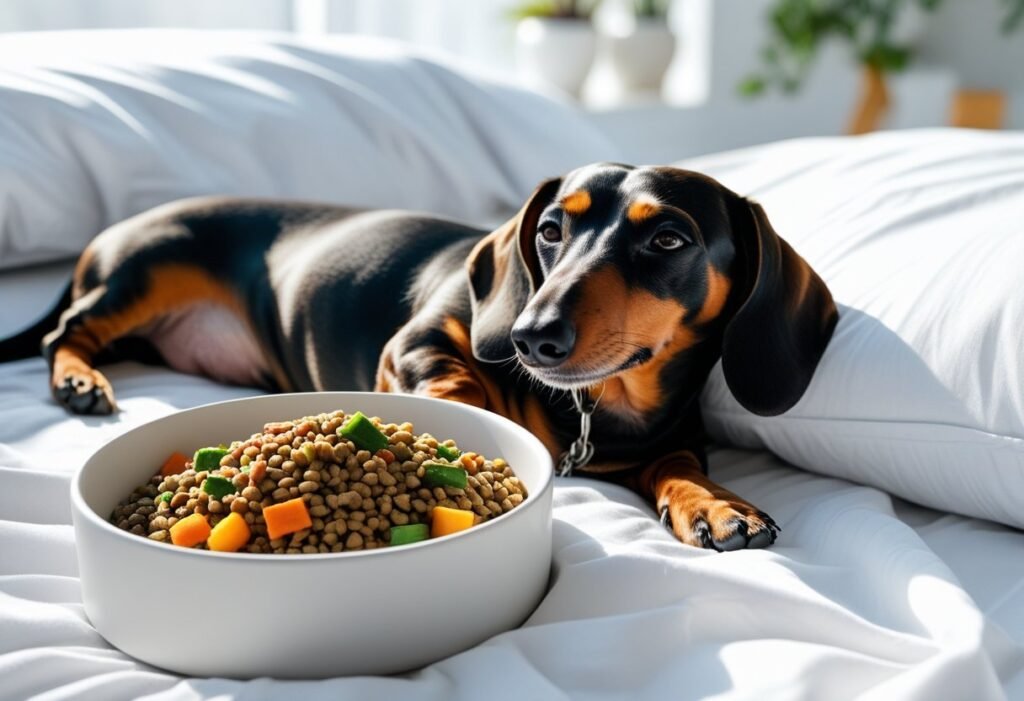
Dachshunds can react badly to specific foods often found in commercial dog diets 🐾. Knowing which ingredients cause trouble and how they affect this breed can help you look out for symptoms early 🔍.
Most Frequent Offending Ingredients ⚠️
Many Dachshunds are allergic to proteins from beef, chicken, dairy, lamb, or eggs 🥛🥚. These proteins are everywhere—dry food, canned food, even some treats 🍖.
Some Dachshunds have issues with soy, wheat, or corn, which are common grains and fillers 🌾🌱🌽.
Here’s a quick table of the top food allergens for Dachshunds:
| Ingredient | Type 📝 |
|---|---|
| Beef 🐾 | Protein |
| Chicken 🐶 | Protein |
| Dairy 🥛 | Protein |
| Wheat 🌾 | Grain |
| Soy 🌱 | Legume |
| Corn 🌽 | Grain |
| Lamb 🐑 | Protein |
| Eggs 🥚 | Protein |
Commercial treats often contain these same allergens 🍪. Always check ingredient lists before you buy new food or treats 📋.

🩺 The Swiftest Pet Insurance Comparison Tool
- Quickly compare trusted pet insurance options
- Helps manage allergy-related vet expenses
- Peace of mind for long-term Dachshund health

🍲 Petlibro Auto Feeder
- Ensures consistent portion control for sensitive diets
- Helps avoid overfeeding that worsens allergies
- Programmable for steady, stress-free feeding
Breed-Specific Risks for Dachshunds 🐕
Dachshunds have sensitive digestive systems compared to some breeds 🍲. Their immune systems may overreact to certain proteins, putting them at higher risk for chronic food allergies ⚡.
These reactions can lead to itchy skin, ear infections, and upset stomach 🤧. Dachshunds are also prone to yeast infections, which get worse if they eat certain grains or sugars 🍞.
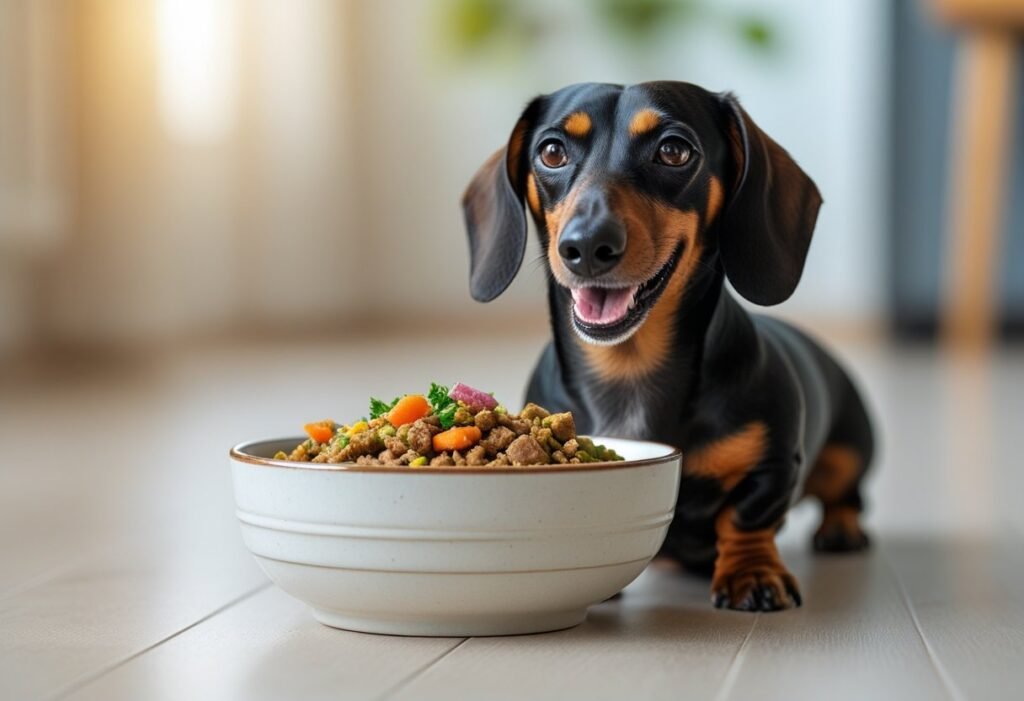
🎉 Grab your free Dachshund care checklist!
Allergies may develop over time, even if your Dachshund has eaten the same food for years ⏳. Watch for new signs like frequent scratching, licking, or soft stools 🐾.
A food trial with hydrolyzed or limited-ingredient diets can help pinpoint the problem 🧪.
Lesser-Known Triggers 🌿
Some food allergies are less common, but they still affect Dachshunds. Ingredients like fish, potatoes, peas, carrots, or artificial additives can sometimes cause a reaction 🐟🥔🥕.
Additives include preservatives, colors, and flavor enhancers. Even natural treats, like certain fruits or peanut butter with xylitol, might trigger symptoms in sensitive dogs 🚫.
Unusual proteins, such as duck or venison, are sometimes used in special diets 🦆🦌. But your Dachshund could still develop allergies to these if fed over a long period ⏱️.
Introduce new foods slowly and watch for any changes in your Dachshund’s health or behavior 🐶. It’s always better to be cautious ✔️.
Diagnosing Food Allergies in Your Dachshund
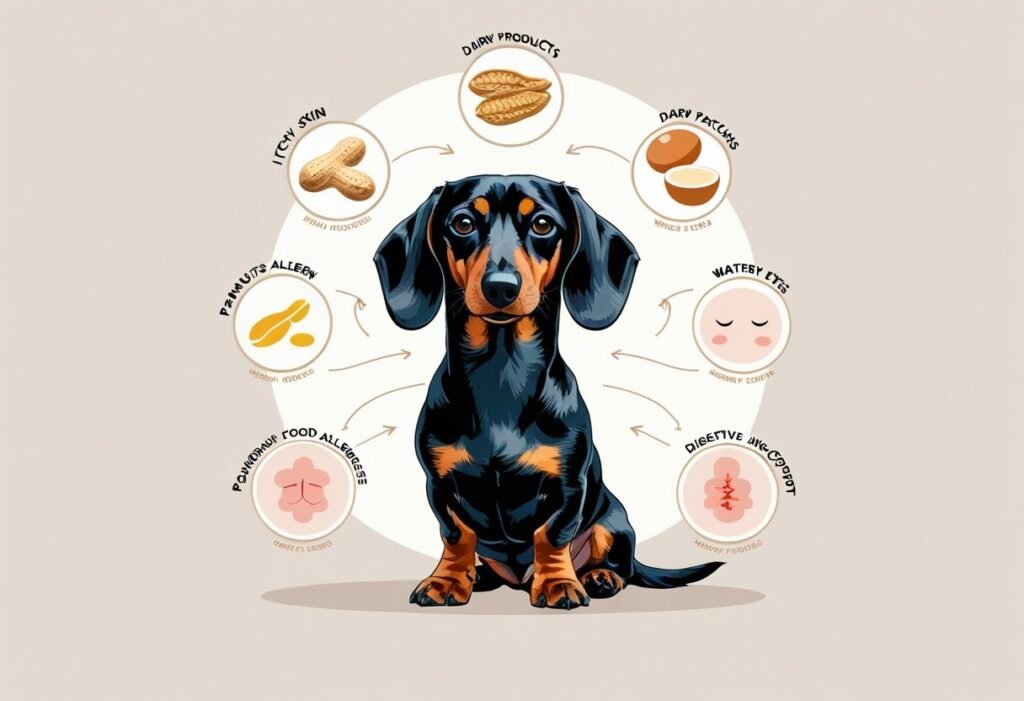
Figuring out the cause of your Dachshund’s food allergies means careful testing and looking at past symptoms 🐾. The right steps can really bring relief for your pet ❤️.
Veterinary Allergy Testing 🧪
To diagnose food allergies, your vet might suggest an elimination diet trial 🥣. This means feeding your Dachshund a simple or special diet, usually with protein and carbs they haven’t eaten before 🍠.
Common novel proteins are duck, venison, or rabbit. During this time, you stop all other treats or table scraps 🚫.
The food trial usually lasts 8–12 weeks ⏳. If symptoms improve, you slowly reintroduce old foods to see what triggers the allergy 🔍.
Skin tests and blood tests exist, but food allergies are best found through diet trials 🧫. Always follow your vet’s instructions and don’t switch your dog’s food without guidance 👩⚕️.
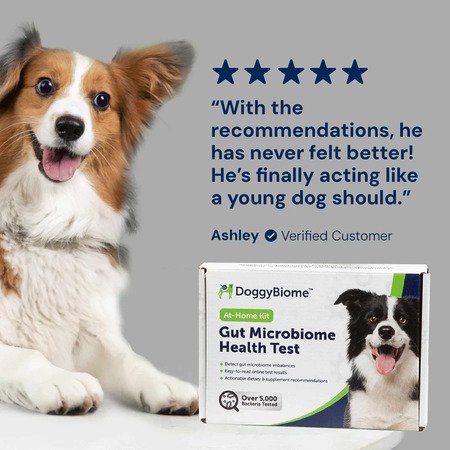
🔬 AnimalBiome Gut Health Kit
- Simple at-home test for gut imbalances
- Helps pinpoint food-related allergy triggers
- Results guide diet changes with confidence

💧 Innovet CBD Oil
- Calms skin irritation linked to food allergies
- Supports relaxation during flare-ups
- Veterinarian-trusted, safe daily supplement
Importance of Medical History 📋
A detailed medical history makes it easier to spot patterns linked to food allergies 🐕. Keep track of everything your Dachshund eats, including treats and any stolen snacks 🍪.
Note symptoms like itching, upset stomach, or ear infections, and when they happen 🐾. This log helps your vet connect foods and symptoms 🔗.
Key items to record:
- Dates and times of symptoms 🗓️
- Foods and treats given 🥕
- Any new foods or supplements 🌿
- Other health changes ⚠️
The Role of Elimination Diets
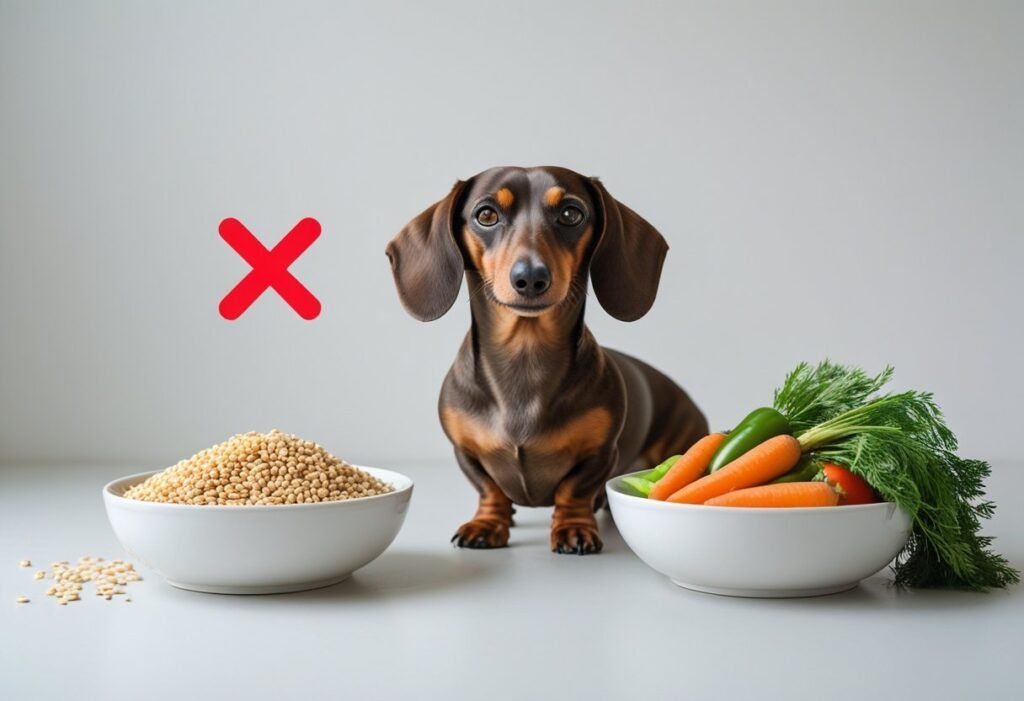
An elimination diet for dogs can help pinpoint which foods cause problems like itching or digestive upset in your Dachshund 🐾. This method means taking away certain foods, then slowly adding them back to find the source of trouble 🔍.
How to Start an Elimination Diet 🥗
Start by feeding your Dachshund just one protein and one carbohydrate they’ve never had before, like duck and sweet potato 🦆🍠. Don’t give treats, flavored meds, or table scraps during the diet 🚫.
This keeps the results as clear as possible ✔️. Stick with this new diet for at least 8 to 12 weeks ⏳.
Common foods to cut out include beef, chicken, dairy, wheat, soy, and corn since these often trigger allergies ⚠️.
Always talk with your vet before starting an elimination diet 👩⚕️. They can help you pick safe foods and keep an eye out for health issues 🩺.

📹 Petcube Cam 360
- Check on your Dachshund during allergy flare-ups
- Two-way audio for comfort and reassurance 💬
- Peace of mind while you’re away from home
📍 Tractive GPS Dog Tracker
- Real-time tracking to keep your pup safe outdoors
- Instant alerts if your Doxie strays too far 🚨
- Waterproof and lightweight for daily walks
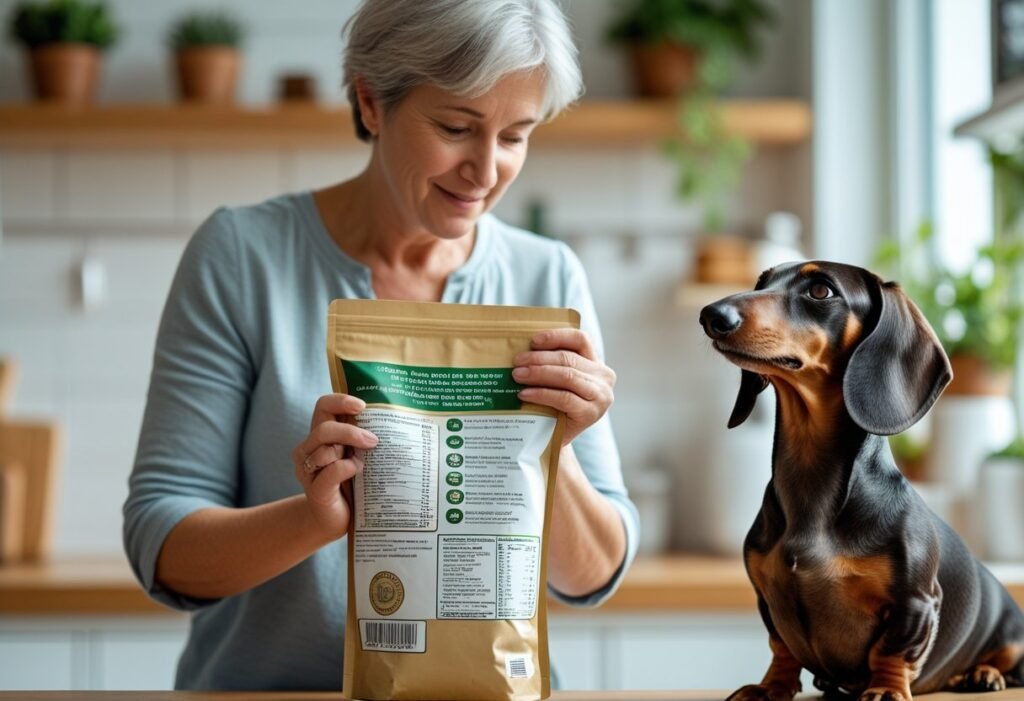
Monitoring Results and Adjustments 📋
While your Dachshund is on the elimination diet, watch for changes in symptoms like skin rash, licking paws, or diarrhea 🐶. Use a simple daily log to track symptoms, energy, and what your dog eats ✍️.
If symptoms start to improve, try returning to the old diet briefly to confirm which food causes the reaction 🔄. This is called a food challenge 🧪.
If symptoms come back after reintroducing certain foods, remove that food from the diet 🚫. Your vet might suggest adding one new ingredient every couple of weeks to narrow down what’s safe ✅.
Don’t make big diet changes without your vet’s advice—they’ll help keep your Dachshund healthy during all this ❤️.
Relieving and Managing Symptoms
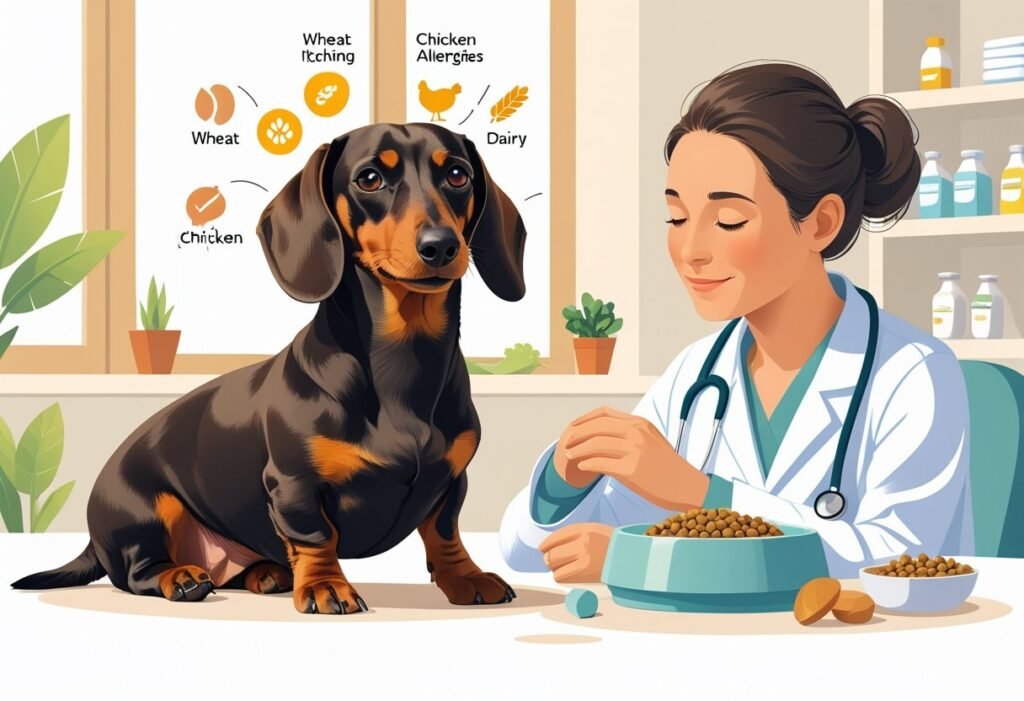
Treating your Dachshund’s food allergies means acting quickly for relief and planning for the long haul 🐾. Using the right strategies helps your dog feel better and keeps future flare-ups at bay 🌿.
Immediate Relief Strategies ⚡
When you spot itching, red skin, or stomach issues, act fast to ease your dog’s discomfort ⏱️. Antihistamines like Benadryl (ask your vet first) can help stop the itch 💊, and bathing your Dachshund with gentle, hypoallergenic shampoo can calm irritated skin 🛁.
Remove the suspected food from your dog’s diet right away 🚫. Offer fresh water often 💧 and stop your dog from licking or scratching by using an Elizabethan collar if you need to 🐕.
Watch for signs of severe allergic reactions—swelling, trouble breathing, or vomiting 🚨. If you see these, call your vet immediately 📞. Speed really matters here.

🛏️ Majestic Pet Orthopedic Dog Bed
- Relieves pressure from sore or itchy skin
- Orthopedic support for sensitive Dachshunds
- Soft, cozy rest to speed recovery 🐾

✂️ Pride + Groom Grooming Tools Kit
- Keep coats shiny and allergy-friendly
- Helps reduce skin irritation and shedding
- Essential for regular Dachshund grooming 🧴
Long-Term Management Options 🕒
The best way to prevent symptoms is to avoid the allergen completely ❌. Work with your vet to find out which foods cause problems using an elimination diet—feed only safe foods and add new ones slowly 🍲.
Pick dog foods labeled “limited-ingredient” or “hypoallergenic” 🏷️. Read ingredient lists carefully 📋 and avoid treats or table scraps with the allergen 🍪.
Keep a food diary of what your dog eats and any symptoms you notice 📖. Regular vet checkups help track your Dachshund’s health and adjust their diet if needed 🩺.
Consider supplements—like omega-3 fatty acids—to support skin health 🌱, but only use those your vet recommends 👩⚕️.
Prevention and Healthy Feeding Practices
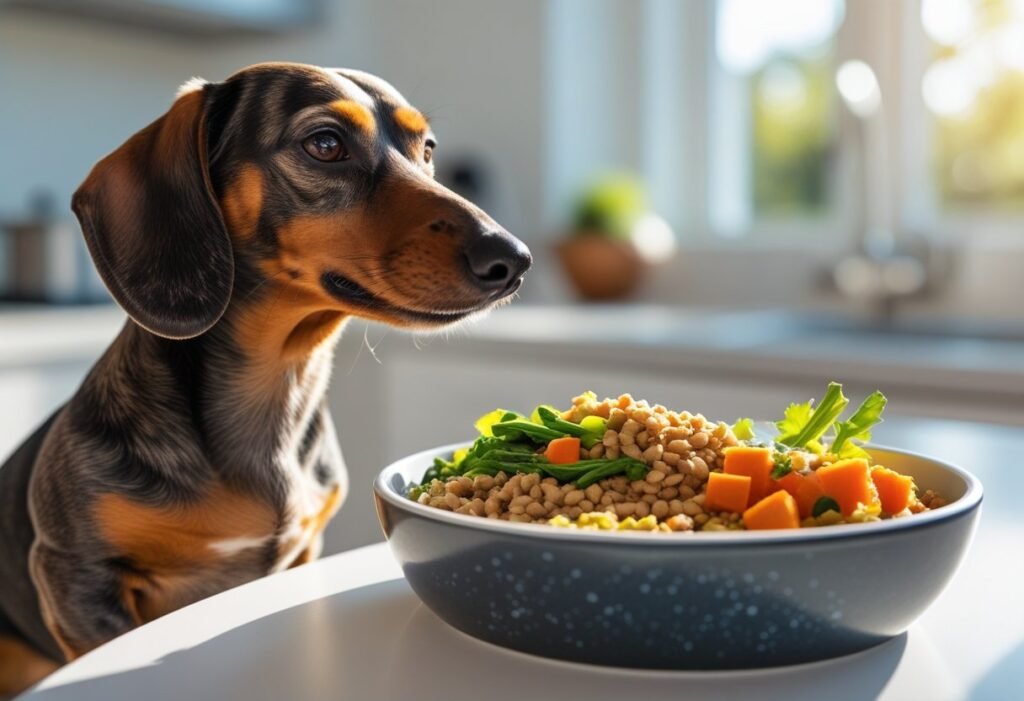
Dachshunds with food allergies need careful meal planning to stay healthy 🐾. Avoiding common triggers, reading food labels, and keeping a balanced diet all help manage allergies 🌿.
Selecting Allergy-Friendly Dog Food 🍠
Pet food companies now make dog foods for allergies 🏷️. Look for products labeled “limited ingredient,” “hypoallergenic,” or “grain-free” if your vet suggests them ✅.
Pick dog foods with protein sources your Dachshund hasn’t reacted to before, like duck or salmon 🦆🐟. Stay away from common allergens like beef, chicken, dairy, eggs, corn, and wheat 🚫.
Ask your vet before switching foods 👩⚕️, since some dogs need special diets. If you make your dog’s food at home, follow vet-approved recipes to make sure all nutrients are covered 🍲. Don’t feed foods with vague or unknown ingredients ⚠️.
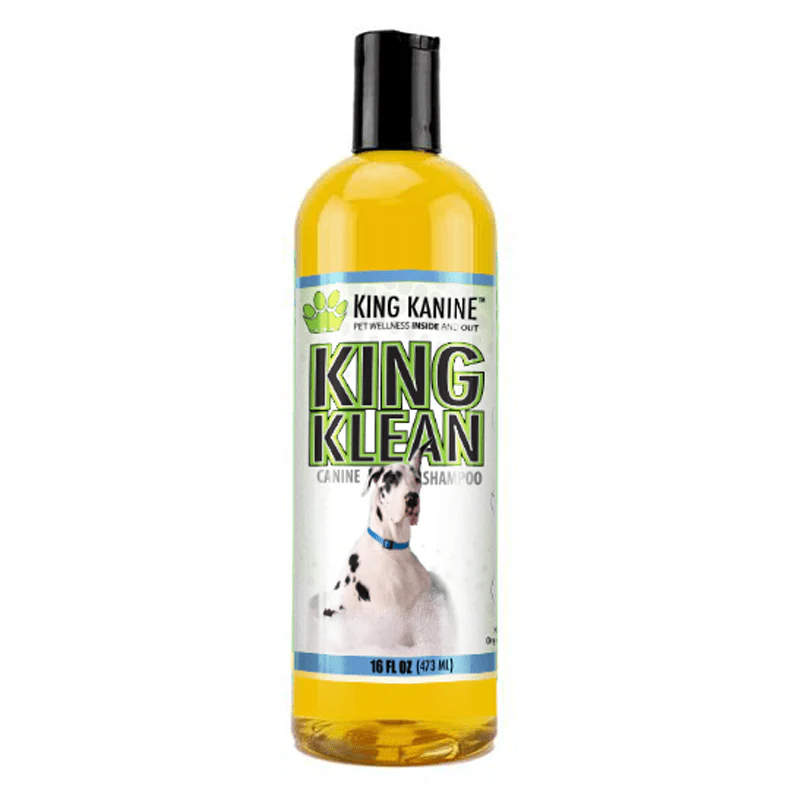
🧼 King Kanine King Klean Organic Dog Shampoo
- Soothes itchy, allergy-prone skin naturally
- Organic ingredients gentle on sensitive coats 🌿
- Leaves your Doxie fresh and comfortable

🧠 Brain Training for Dogs
- Boosts mental stimulation during allergy downtime
- Reduces stress and keeps pups engaged 🐶
- Easy online lessons for all dog parents
Reading Ingredient Labels Effectively 📋
Read dog food labels closely to spot possible allergens 👀. The ingredients list shows what’s inside, starting with the biggest ingredient 🥣.
Look for clear, single-source proteins (like “salmon” or “venison”) 🐟🦌. Avoid products that list “meat by-products” or “animal digest” since these can hide allergens ❌.
Common allergens to watch for:
- Chicken 🐔
- Beef 🐄
- Dairy 🥛
- Corn 🌽
- Wheat 🌾
- Soy 🌱
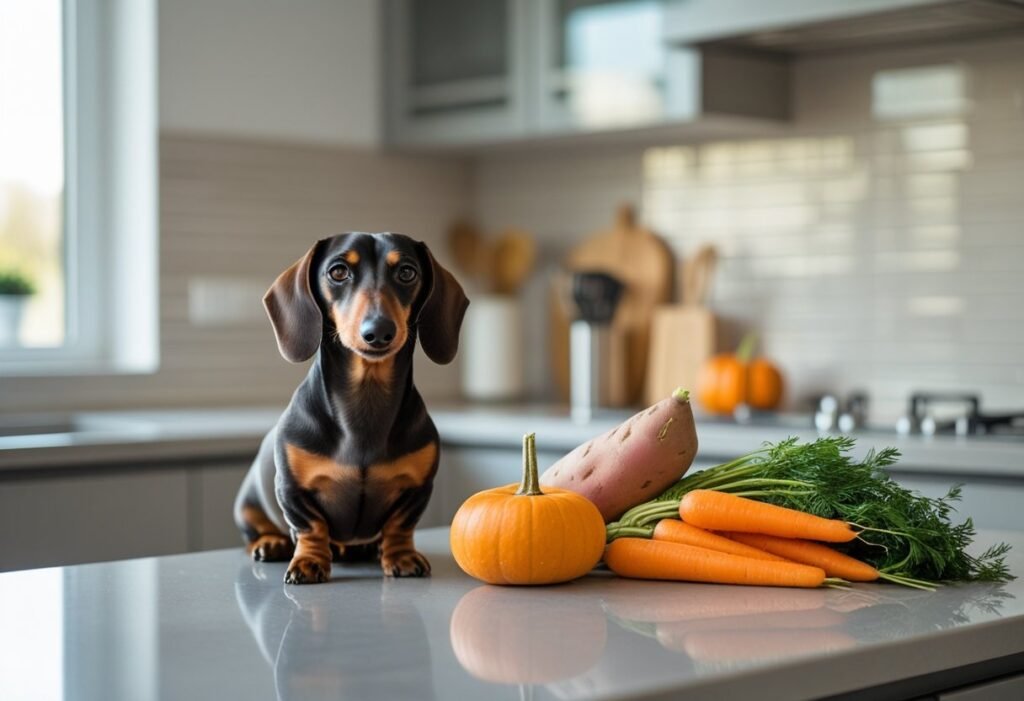
Also, keep an eye out for artificial flavors, colors, and preservatives 🎨. Sometimes these trigger allergies or make things worse 🚫.
Establishing a Balanced Diet ⚖️
A balanced diet gives your Dachshund the right mix of protein, carbs, fat, vitamins, and minerals 🥗. Work with your vet to plan meals that fit your dog’s needs and health issues 🩺.
Add variety with safe foods so your dog doesn’t miss important nutrients 🌱. Small amounts of cooked veggies like carrots or green beans can add fiber and vitamins 🥕🥦.
Skip rich or spicy treats—they tend to upset sensitive stomachs 🚫.
Table: Examples of Balanced Food Choices
| Protein 🥩 | Carbohydrate 🍚 | Safe Treats 🍎 |
|---|---|---|
| Duck 🦆 | Rice 🍚 | Plain carrots 🥕 |
| Salmon 🐟 | Sweet potato 🍠 | Green beans 🟩 |
| Lamb 🐑 | Oats 🌾 | Sliced apple* 🍏 |
*No seeds or core
Clean, fresh water should always be available 💧. Try to feed at the same times each day—regular meals help reduce digestive stress for sensitive dogs ⏰.
Potential Complications of Untreated Allergies

If your Dachshund’s food allergies go untreated, they can have ongoing problems with their skin, ears, and overall health 🐾. Ignoring the signs might mean extra vet visits and a lower quality of life for your dog ⚠️.
Chronic Skin and Ear Issues 🩺
Ongoing allergies can make your Dachshund’s skin itchy, red, and sore 🔴. You might see your dog scratching, licking, or biting their paws and body a lot 🐕.
After a while, this constant irritation can cause open sores or bald spots ⚡. Dogs often get bacterial or yeast infections in these areas too 🦠.
Ear problems show up a lot, with symptoms like head shaking, dark discharge, or a bad smell from the ears 👂. Chronic ear infections hurt and can even damage hearing if you don’t treat them 🚫.
🌿 Allergy Relief & Daily Care Helpers for Your Dachshund
- 🛏️ Majestic Pet Pet-Stairs — Protect joints and avoid flare-ups by giving your Dachshund gentle access to beds or couches.
- 💧 Petlibro Water Fountain — Fresh, flowing water encourages hydration, easing digestion and allergy discomfort.
- 🍪 Petcube Bites 2 Lite — Monitor your pup and reward them with safe, allergy-friendly treats even when you’re away.
- 🔬 AnimalBiome Gut Restore Capsules — Supports gut balance and reduces allergy flare-ups linked to digestion.
Long-Term Health Risks ⏳
Long-term allergies can weaken your Dachshund’s immune system 🧬. This makes them more likely to get sick from other things, not just skin or ear infections 🤒.
Some dogs lose weight or have stomach problems like vomiting or diarrhea 🥴. Poor nutrition can happen if your dog avoids food because it makes them feel sick 🍲.
Untreated allergies might even affect your dog’s mood and energy ⚡. Maybe you’ll notice your dog seems tired, restless, or not as playful 🎾.
Chronic health problems just lower your dog’s quality of life and get harder to fix as time goes on 💔.
When to Seek Expert Help
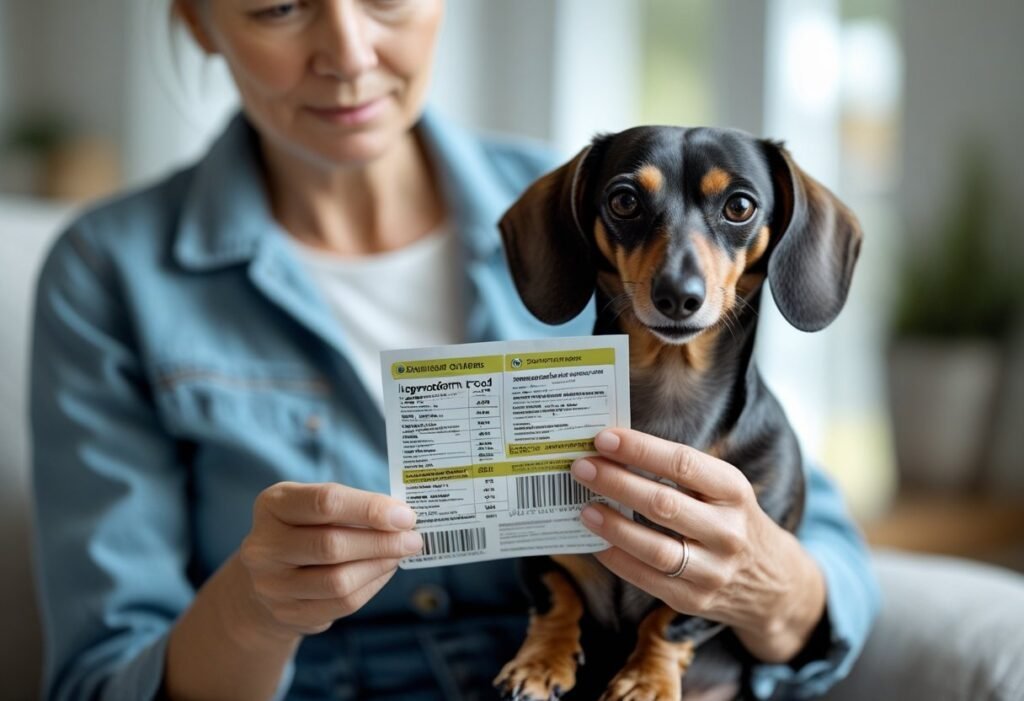
If your Dachshund’s symptoms aren’t getting better or get worse, it’s time to get professional advice 🐾. Quick action can help stop health problems from getting serious ⚠️.
Consulting a Canine Nutritionist 🥗
A canine nutritionist knows how to spot food ingredients that might be causing your dog trouble 👩⚕️. They’ll review your dog’s current diet, suggest specific brands or foods, and even put together a meal plan just for your Dachshund 📋.
Nutritionists often use food trials and elimination diets to safely figure out what your dog can actually eat without issues 🧪.
You might want to reach out to a nutritionist if:
- Your dog keeps itching, has stomach issues, or shows swelling even after you change their food 🐕
- You’re lost when it comes to reading food labels or ingredient lists 📖
- You want to make homemade dog food but aren’t sure how to balance the nutrients 🍲
🌿 Allergy-Friendly Essentials — Comfort, Calm & Care for Sensitive Dachshunds 🐾
- 🎽 Embark Pet Adventure Harness – Lightweight and gentle, this harness prevents friction or irritation on sensitive skin — perfect for daily walks without discomfort.
- 🧴 Pride + Groom “The Final Coat” Conditioner – Deeply nourishing, hypoallergenic conditioner that soothes itchy, dry skin and restores shine to allergy-prone coats naturally.
- 😌 Zumalka Calmpet Anxiety Relief Drops – Calm skin-related stress and soothe your Doxie’s nerves while their body recovers from allergy flare-ups.
- 🎨 Purr & Mutt Personalized Dachshund Art – Add warmth to your home while celebrating your pup’s resilience — a charming keepsake for every Dachshund parent.
- 👕 Dog is Good Apparel & Gifts – Comfortable, allergy-friendly apparel and positive pet-parent gear to make care routines more cheerful and stress-free.
🐾 Help your Dachshund feel their best with skin-soothing care, gentle products, and calm energy — easing allergy symptoms from the inside out. 🌱
Finding a Specialized Veterinarian 🩺
Some vets have extra training in allergies and skin problems. They’re called veterinary dermatologists 🐶.
These specialists use blood tests, skin tests, and physical exams to track down food allergies 🔍. They also treat infections or other issues caused by constant scratching or licking 🚑.
See a specialized vet if your Dachshund:
- Has hives, vomiting, or trouble breathing 🚨
- Gets skin or ear infections 👂
- Doesn’t get better after changing foods ❌
Specialized vets might recommend prescription diets or set up a long-term allergy plan 📊. They’ll work with you to keep an eye on symptoms and adjust the plan as needed 🔄.
🐾 Don’t Miss Out!
Download our free Dachshund care guide to keep your furry friend happy and healthy.
Get Your Free Guide 🐶Frequently Asked Questions

Dachshunds can react to foods like chicken, beef, wheat, or dairy 🐾. Watch for skin problems or digestive issues, and make careful changes to their diet if you suspect allergies 🌿.
What ingredients should I avoid in dog food for a dachshund with allergies? ❌
Common triggers are chicken, beef, soy, wheat, corn, and dairy 🚫. Some Dachshunds also have problems with artificial additives, colors, or certain grains 🎨. Go for dog foods with limited ingredients and clear labels—don’t overcomplicate it 🏷️.
What are the signs that my dachshund is suffering from food allergies? 🐕
Watch for itchy skin, lots of scratching, red or swollen ears, and paw licking 🐾. Stomach problems like diarrhea, vomiting, or gas can show up too 🤢. Repeated ear infections are another sign to keep in mind 👂.
How can I distinguish between food allergies and environmental allergies in my dachshund? 🌍
Food allergies usually stick around all year if your dog keeps eating the same food ⏳. Environmental allergies tend to flare up during certain seasons or when your dog spends more time outside 🍂. Your vet might suggest an elimination diet to help sort it out 🧪.
What is the recommended dietary change for a dachshund with food allergies? 🥗
Try a limited-ingredient or hypoallergenic diet 🏷️. Novel proteins like duck or salmon, or prescription foods, can help 🦆🐟. Change foods slowly and always check in with your vet first 👩⚕️.
How long does it take for allergy symptoms to improve after changing a dachshund’s diet? ⏱️
Some dogs start feeling better within 2-4 weeks of starting a new diet 🐶. Full improvement might take up to 8 weeks 📅. Hold off on treats or table scraps during this time so you know what’s working 🚫.
Are there any home remedies for skin irritation in dachshunds caused by food allergies? 🛁
Try bathing your Dachshund with a gentle, oatmeal-based dog shampoo 🌾. It can help soothe irritated skin, at least a bit 💧.
Keep their bedding clean 🛏️. Vacuum often to cut down on dust and other stuff that might bother them 🧹.
But hey, always check with your vet before trying anything new—especially if your pup’s skin looks really bad or seems infected ⚠️.

